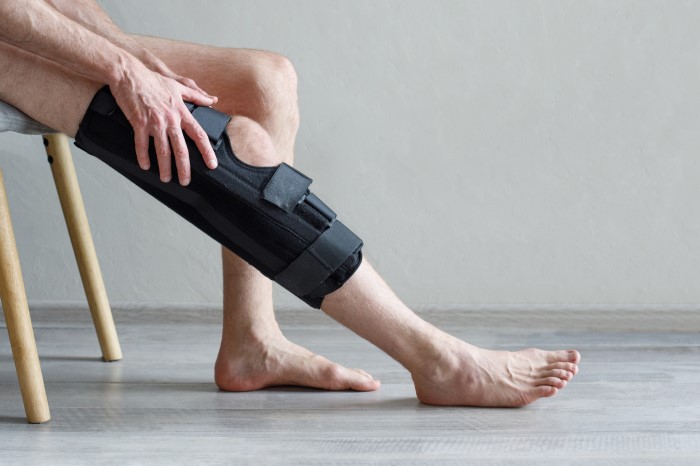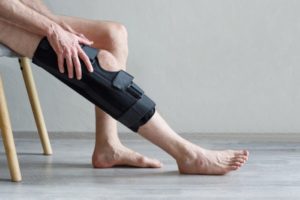
Got injured in a car accident because the driver was typing a text on the phone? Maybe you slipped on ice on the walkway when going shopping and hurt your back? These are just some basic examples of personal injuries.
Luckily, even when random misfortune strikes, you don’t just have to curl up and accept your fate. You can hold negligent parties accountable by filing a personal injury claim.
But before you go down that road, it’s a good idea to know what exactly constitutes a personal injury claim. This guide will help you figure that out.
1. Establishing Negligence
In personal injury cases, it’s all about showing that someone else was careless or didn’t do what they were supposed to do, which led to your injury. The law expects everyone to act reasonably and take precautions to prevent harm to others. If they fail to do so, and someone gets hurt, that’s negligence.
Having top lawyers such as those at this Hartford personal injury law firm or others near you can go a long way. These pros can help you set up a solid base for your personal injury claim.
2. Injury Documentation
Now, let’s talk about documenting your injury. Medical records are your best friend here. They show exactly what your injuries are and how they affect you.
Photos are also helpful. Did you take a picture of that wet floor where you fell? That’s gold! Document everything: your injuries, the scene, everything.
3. Liability Determination
Determining liability is about piecing together who is responsible for your injury. Below are a few key things to look at:
- Did the person have a duty to keep you safe? For example, store owners should be responsible and have a duty to keep their floors clean and safe.
- Did they breach that duty? Maybe they left that floor wet without a warning sign.
- And, most importantly, did their action (or inaction) directly cause your injury?
If all these pieces fit, then you’ve established liability.
4. Causation Proof
When talking about causation proof, it simply means the need to show a clear connection between what the other party did (or didn’t do) and the injury you suffered.
Let’s say someone was texting while driving and ran a red light, leading to a car accident where you got hurt. Here, it’s pretty clear that their action (or inaction, in some cases) directly caused your injuries.
This step is crucial because it’s not just about showing that the other person was careless but also that their carelessness is the reason you’re now facing medical bills, pain, and maybe even being unable to work.
5. Types Of Damages
This part can get a bit numbers-heavy, but it’s important since it talks about the compensation you might be entitled to because of the injury.
There are a couple of categories here:
Compensatory Damages:
Think of these as the costs to get you back to your pre-injury state (as much as possible, anyway). This includes medical bills, any wages you lost because you couldn’t work, and even compensation for the pain and suffering you’ve endured.
Punitive Damages:
These aren’t as common, and they’re not really about compensating you. Instead, they’re more about punishing the other party for particularly reckless behavior and sending a message to others.
6. Legal Representation
When it comes to legal representation, a personal injury attorney can go great lengths for you. That’s why data published in the National Library of Medicine in 2020 shows a double-digit uptick in legal representation for personal injury claims.
Why are they crucial? For one, a personal injury attorney knows very well the ins and outs of the legal system. They can ensure the correct handling of your case from the start.
An experienced attorney brings a lot to the table in terms of strategy and negotiation skills. They’re your advocate, fighting for your rights and making sure you get the compensation you deserve. This can be especially important when dealing with insurance companies, as they often have teams of lawyers. Without your own legal expert, you might find yourself at a disadvantage.
Another big plus? Personal injury attorneys usually operate on a contingency fee basis. This means that they only get paid if you win your case or secure a settlement. It’s a great setup because it aligns your attorney’s interests with yours and motivates them to get the best possible outcome for you.
7. Insurance Company Involvement
Now, if you think insurance companies are always there to hand out money easily, think again. After all, they’re businesses. And their goal is to pay out as little as possible.
When you file a claim, you might find them trying to downplay how serious your injury is or even suggesting that you had a role in what happened. They have a lot of tactics like this to try to minimize what they have to pay.
That’s why it’s often a game of negotiation. Sometimes, they’ll offer a settlement amount early on, hoping you’ll take it so they can close the case quickly and cheaply. Having a good personal injury attorney can make a huge difference here.
8. Settlement vs. Trial
Diverse reports indicate that only about 3-5% of personal injury claims end up going to trial. For one, settling out of court is often seen as the quicker, less stressful route. Also, you avoid the unpredictability of a trial, and you can get compensation without the wait and the public exposure of a court case. Furthermore, settlements are pretty common because they’re a way for both parties to have control over the outcome and avoid the costs and risks of a trial.
On the flip side, going to trial can sometimes lead to higher compensation, especially if your case is strong and the damages are significant. However, remember that trials are a gamble. They can be long and emotionally draining, and there’s always the risk of losing, even if your case seems strong.
Key Takeaway
Navigating a personal injury case can be daunting. That said, don’t hesitate to use all the legal avenues at your disposal and lean on your lawyer’s expertise every step. The goal is to get your life back to normal as much as possible. Or if injuries have caused permanent setbacks – the financial support you need to adjust to a new normal. It’s what you deserve!








